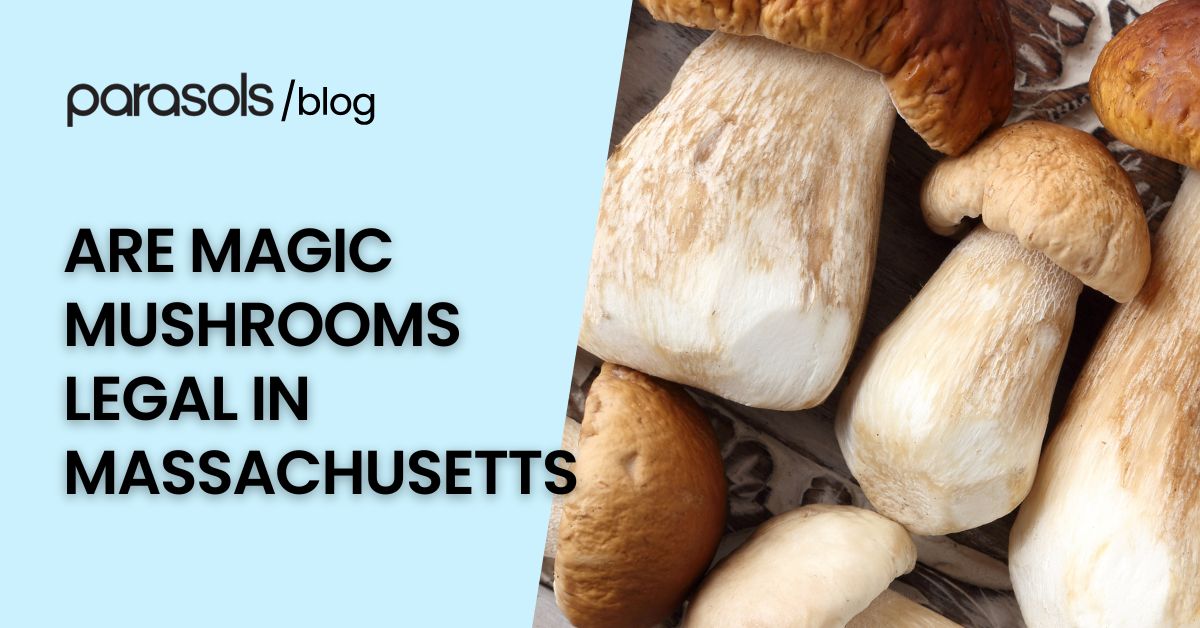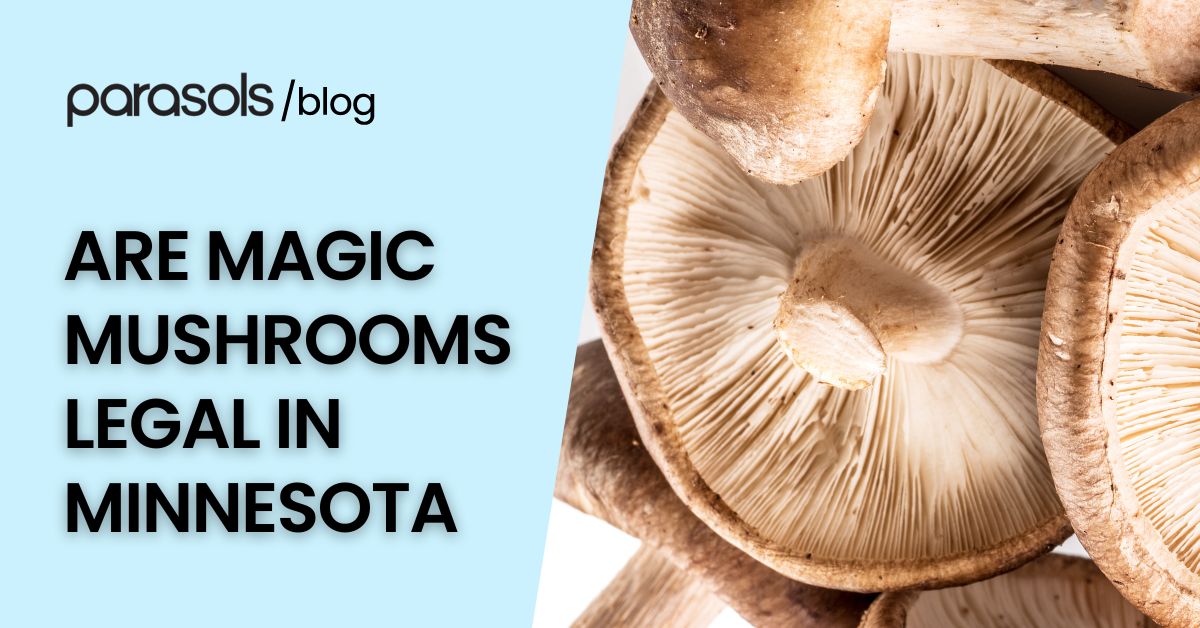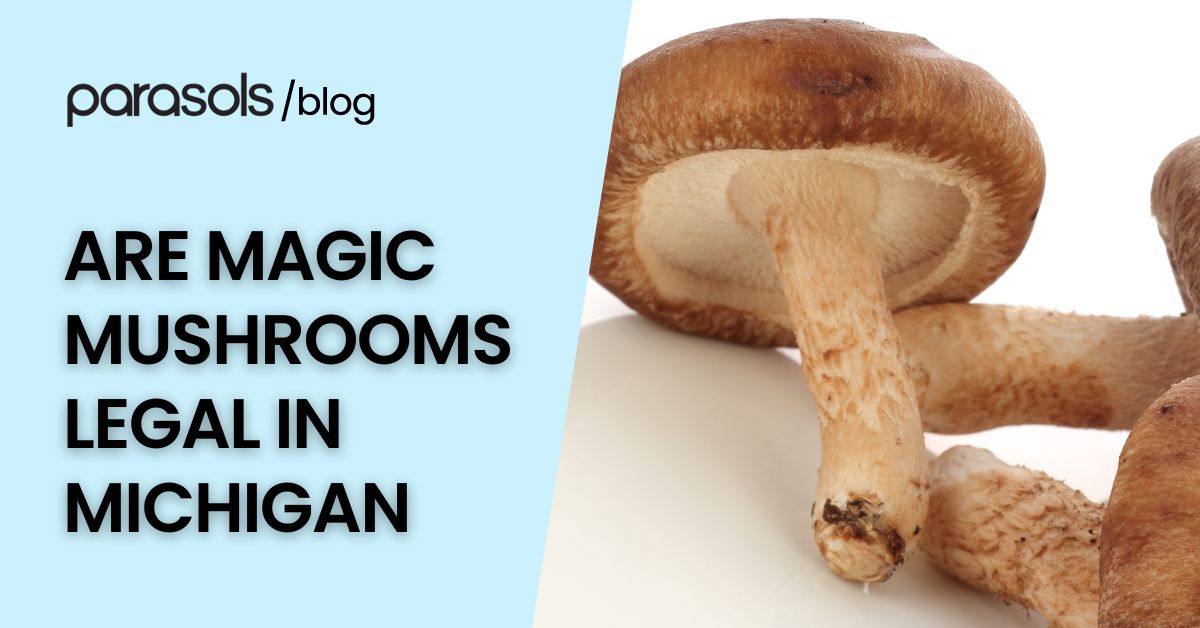Curiosity around natural psychedelics like magic mushrooms is growing rapidly, especially as conversations about mental health and alternative treatments gain momentum. In Massachusetts, many residents are asking where psilocybin stands legally — and what that means for personal use, therapy, and future policy. Here's what you need to know.
Overview on Magic Mushrooms
Magic mushrooms, scientifically known as psilocybin mushrooms, are a type of hallucinogenic substance that contain the naturally occurring psychedelic compound psilocybin. When consumed, psilocybin alters perception, mood, and cognition, often leading to profound experiences.
Used for centuries in spiritual and medicinal contexts, these psychedelic substances are now being revisited for their potential benefits in treating conditions like depression, anxiety, and PTSD.
Are Magic Mushrooms Legal in Massachusetts?
Magic mushrooms are not legal in Massachusetts. Psilocybin, the active compound in these psychedelic substances, is still considered a controlled substance under both federal law and state law.
While some Massachusetts cities have moved to decriminalize psilocybin possession, this does not mean it is legal. Decriminalization simply makes it a lower priority for law enforcement. Massachusetts voters have also recently rejected broader measures to legalize psychedelics for therapeutic use. As of now, psilocybin remains illegal for personal use, cultivation, or sale statewide.
Legalities Surrounding Magic Mushrooms in MA

Public interest in natural psychedelics is on the rise, but the legal status of magic mushrooms in Massachusetts remains complex and heavily restricted. Here's a breakdown of the current landscape:
Federal Classification and Oversight
Psilocybin is listed as a Schedule I substance under the Controlled Substances Act, meaning it is considered to have no accepted medical use and a high potential for abuse. The Drug Enforcement Administration enforces this classification at the federal level, making the possession, sale, or use of psilocybin mushrooms federally illegal across all states, including Massachusetts.
Massachusetts State Law
Under Massachusetts state law, psilocybin mushrooms are classified as Class C controlled substances. This makes their possession, cultivation, or distribution illegal. While some states have made progress toward therapeutic use, Massachusetts maintains strict regulations in line with federal law. Law enforcement can pursue legal penalties including fines or incarceration for activities involving these psychedelic substances.
Local Decriminalization Measures
Several Massachusetts cities, such as Somerville, Cambridge, Northampton, Easthampton, and Salem, have voted unanimously to decriminalize possession of psilocybin and other entheogenic plants. These efforts do not legalize the substances, but rather make enforcement a lowest priority for local law enforcement agencies. These cities aim to shift focus away from personal use and toward public health and mental health options.
Legislative Developments
While Massachusetts voters rejected a recent ballot measure aimed at broader reform, lawmakers continue to introduce recent bills that study the therapeutic potential of psilocybin-assisted therapy. Proposed state-level frameworks have included provisions for licensed facilities and professional supervision, similar to the models implemented in Oregon and Colorado. These developments signal a growing recognition of psilocybin’s therapeutic benefits and a gradual shift in public perception.
What Happens When You Possess or Use Shrooms in MA?
Despite shifting views on psychedelic substances, psilocybin mushrooms remain illegal in Massachusetts. Here’s what happens if you're caught:
- Criminal Charges – Possession of psilocybin is considered a violation of the Controlled Substances Act and Massachusetts state law. First-time offenders may face misdemeanor charges, while larger quantities or repeat offenses can lead to felony charges.
- Fines and Jail Time – A first offense can result in up to 1 year in jail and a fine of up to 1,000 dollars. A second offense may lead to up to 2 years of incarceration and fines reaching 2,000 dollars. Charges related to distribution or cultivation can lead to penalties of up to 2.5 years in jail and fines between 500 and 5,000 dollars. Repeat distribution offenses may carry up to 10 years in prison and fines up to 10,000 dollars.
- Local Decriminalization Doesn’t Mean Legal – While some Massachusetts cities have moved to decriminalize possession of psychedelic plants, these changes only deprioritize enforcement. State and federal law still apply and can override local policy.
- Impact on Your Record and Employment – Convictions for possession or related offenses can affect employment, licensing, housing, and other areas of life, even after serving time or paying fines.
- Federal Prosecution Risk – Psilocybin remains a Schedule I substance federally. The drug enforcement administration can enforce penalties, especially in cases involving distribution or transportation across state lines.
Alternatives for Magic Mushrooms in Massachusetts
While psilocybin remains illegal, those seeking therapeutic benefits or altered states of consciousness have several legal or low-risk alternatives in Massachusetts. Here are a few options:
- Psychedelic Therapy Research Programs – Some institutions offer access to clinical trials for psilocybin therapy or other psychedelic substances under professional supervision.
- Ketamine-Assisted Therapy – Ketamine, a legal dissociative drug, is offered in licensed therapy centers across the state and is being used to treat depression and PTSD.
- Holistic Mental Health Practices – Mindfulness, breathwork, and guided meditation are gaining traction as natural methods for emotional healing and introspection.
- Cannabis Therapy – Legalized in Massachusetts for both medicinal and recreational use, cannabis offers some therapeutic potential and is accessible to adult residents.
- Entheogenic Advocacy Groups – Community organizations support education and policy reform for natural psychedelics, offering safe spaces for learning and dialogue without promoting illegal activity.
Final Thoughts

Massachusetts may not yet fully adapt the therapeutic use of psilocybin, but public interest, research, and legislative efforts continue to shape the conversation. While magic mushrooms remain illegal, residents still have access to alternative mental health options that reflect a growing curiosity toward natural psychedelics.
Stay informed, study your choices responsibly, and keep an eye on evolving state and federal law that may redefine what's possible in the near future.
Frequently Asked Questions
Can you buy psilocybin mushroom spores in Massachusetts?
Yes, psilocybin mushroom spores can be legally purchased in Massachusetts for microscopic or research purposes, as they do not contain the active hallucinogenic compound. However, cultivating them into psilocybin-producing mushrooms is illegal.
Is psilocybin therapy available at Massachusetts General Hospital?
Massachusetts General Hospital has participated in research related to psychedelic therapy, including psilocybin studies, but it does not offer psilocybin-assisted therapy to the public at this time due to legal restrictions.
What is the difference between natural and synthetic psychedelics?
Natural psychedelics like psilocybin mushrooms and other entheogenic plants occur in nature, while synthetic psychedelics are lab-made substances designed to mimic or enhance psychedelic effects. Both are typically classified as controlled substances unless approved for research or limited medical use.
Has Massachusetts considered establishing healing centers like Oregon?
Yes, proposed legislation and ballot initiatives have discussed creating licensed healing centers for supervised psilocybin therapy, similar to the model in Oregon. However, no statewide regulatory framework has been implemented yet.
Can you use psychedelics legally in religious or ceremonial settings?
There are no legal protections in Massachusetts that explicitly allow the use of psilocybin or other psychedelics in religious or ceremonial contexts. Such use still falls under state and federal controlled substance laws.



Leave a comment
This site is protected by hCaptcha and the hCaptcha Privacy Policy and Terms of Service apply.